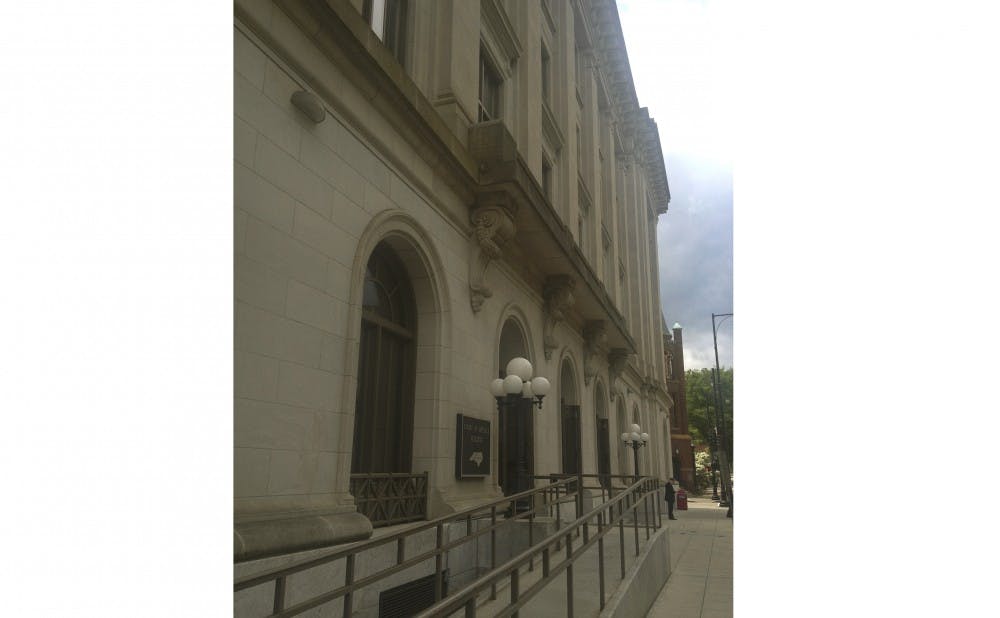A 2013 law that eliminates tenure for North Carolina’s teachers is under fire in the Court of Appeals.
Prior to 2013, teachers with more than four years at a school were eligible for career status, better known as tenure. Under the new bill, however, teachers are no longer able to get career status, and teachers that already had tenure will lose that privilege. The North Carolina Association of Educators filed a lawsuit against the General Assembly, saying that the law violates teachers’ due process rights. Justice Robert Hopgood of the Wake County Superior Court ruled for the NCAE, but the case is now being considered by a Court of Appeals.
Mark Jewell, vice president of the NCAE, said he feels that the removal of tenure fits into a larger trend in the state of North Carolina, as fewer and fewer teachers are choosing to teach in the state.
“Teachers realize that they’re not going to get any protections of career status,” Jewell said. “ They can go to Virginia or South Carolina or Georgia, and get all of these benefits. Why would they want to choose North Carolina?”
Jewell expressed concern that this could lower the quality of education in the state.
“It’s going to impact the quality of education in North Carolina,” Jewell said.
Part of the reason for the bill being passed was the legislature’s attempt to emphasize performance-based pay, where teachers would be rewarded for the success of their students. Jewell, however, feels that the legislature’s attempt is misguided.
“Teachers are always living up to the highest level of performance, whether they have thirty or three years,” Jewell said. “There has not been one iota of research that has said that pay-for-performance plans improve student learning. One of the most highly regarded plans is the Guilford County Mission Possible [program], which offered pay incentives based on student performance, and even then there was no evidence that it increased student performance.”
Kristen Stephens, associate professor of the practice in Duke’s education program, added that achieving great performance and providing tenure are not necessarily mutually exclusive. She noted that tenured professors in fact can be fired, but that the tenure classification provides them the security of being able to appeal the decision.
“The belief that you can’t terminate tenured teachers is unfounded and is wrongly being used to push support for a performance-based system,” Stephens wrote in an email Jan. 31. “This is not the case. Tenure just provides the right to due process should a teacher be dismissed from his/her position.”
Under the new law, teachers who are fired can still appeal the decision to a local board of education, but the board isn’t required to hear the case. Under the previous law, tenured teachers could expect to get a full hearing on their termination. English professor Victor Strandberg, who described himself as passionate about the issue, fears this will make it easier for teachers to be terminated for no good reason.
“Due process is necessary because, being human, principals may variously exercise favoritism, bad judgment, or even malice toward their underlings,” Strandberg said. “Tenure will ensure that a case will have to be made, supported by evidence, to sustain a fair judgment.”
The law, however, does include a provision legislating against such firings.
“A decision not to offer a teacher a renewed contract shall not be arbitrary, capricious, discriminatory, for personal or political reasons, or on any basis prohibited by State or federal law,” the law states.
The law also provides for a pay raise for 25 percent of teachers who have consistently shown increases in student performance. Jewell noted that teachers had rallied against this idea.
“That is not the way you increase student performance, by pitting teachers on one side of the hall against teachers on the other side of the hall,” Jewel said. “Teachers will tell you that the other 75 percent of teachers in my building are doing a bang-up job, and that I’m not going to go out and just pick 25 percent for a raise.”
Get The Chronicle straight to your inbox
Sign up for our weekly newsletter. Cancel at any time.
Strandberg sees a more sinister political agenda behind these recent changes in education law in North Carolina.
“There is an agenda behind this that is an extreme right-wing agenda, the [American Legislative Exchange Council] agenda,” Strandberg said. “The Republican majority more or less takes their marching orders, and right down the line breaking the teachers is one of their objectives.”
Stephens indicated that, in her opinion, the Court of Appeals is leaning towards siding with the NCAE. The Court has not yet decided the case.
Jewell noted that prospective teachers can be re-energized and motivated to get into the educational profession so long as states begin to provide them the benefits they haven’t been getting.
“Their parents are actually encouraging them not to go into teaching due to the poor pay, the poor benefits and the challenges of the working conditions," Jewell said. "It’s just not sufficient for them to provide for their own families without these benefits."
Deputy Attorney General Melissa Trippe, who is representing the state, declined to comment, and legislators who crafted the original legislation were unable to be reached for comment prior to publishing.

